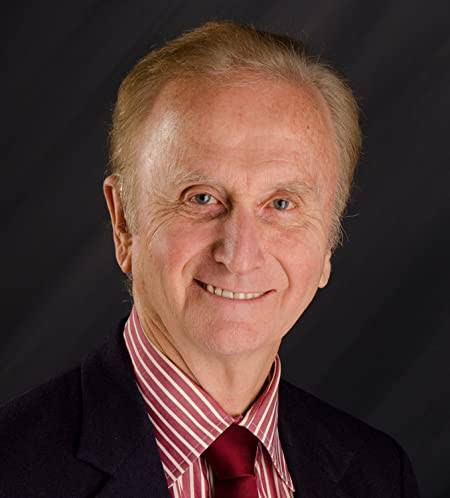1. L'autopsie de Flo Jo révèle de graves problèmes respiratoires
L'AUTOPSIE - DOSSIER DU CORONER # 98-6262ME
Des résidus de deux médicaments ont été détectés dans le sang de Flo Jo. L’un était de l’aspirine et l’autre du Benadryl. Benadryl est un antihistaminique. Flo Jo avait des histamines produites dans son corps. Elle était congestionnée. Elle a pris du Benadryl pour soulager sa congestion.
2. Les médecins conseillent à Olajuwon de se reposer
J'ai entendu dire que les médecins ont dit au Houston Rockets Center Hakeem Olajuwon de rester en dehors du terrain pour une durée indéterminée en raison de problèmes respiratoires.
"Il a été réexaminé aujourd'hui par une équipe de médecins et nous lui avons recommandé de ne pas jouer au basket pendant un certain temps", a déclaré James Muntz, le médecin des Rockets, dans un bref communiqué publié par l'équipe.
Olajuwon, 37 ans, a été diagnostiqué le 1er mars avec une maladie qui restreint la circulation de l'air dans ses voies bronchiques lors d'exercices intenses, provoquant des spasmes dans ses poumons. Il prend des médicaments pour cette maladie.
3. Migliore a des difficultés respiratoires - The Associated Press 29/03/00 16h59, heure de l'Est
NEW YORK (AP)
Le jockey Richard Migliore s'est plaint de difficultés respiratoires après avoir sauté de sa monture, Denver Mint, lors de la septième course d'Aqueduct mercredi. Migliore, souvent blessé, faisait son retour à New York après avoir couru en Floride pendant l'hiver. Il a dit qu'il consulterait son propre médecin pour un diagnostic.
De Mike White : La posture du corps d'un jockey est TRÈS négative pour une respiration profonde et facile.
4. Bronchite chez un cycliste de classe mondiale ? Un coureur suisse remporte la course sur route masculine
ATLANTA (AP) -- La condition physique fournie par le Tour de France était évidente lors de la course cycliste olympique sur route d'aujourd'hui.
Les trois médaillés ont participé au Tour, tandis que le favori américain Lance Armstrong, qui s'est retiré pour cause de maladie, s'est évanoui dans la course d'aujourd'hui.
"J'avais dit avant la course que le vainqueur viendrait du Tour de France", a déclaré l'Américain Frankie Andreu, quatrième.
Le Suisse Pascal Richard a dépassé le Danois Rolf Sorensen dans les 20 derniers mètres pour remporter la victoire par longueur de vélo lors de la première course olympique sur route ouverte aux professionnels.
Richard a parcouru le parcours de 138 milles en 4 heures, 53 minutes et 56 secondes. Il a basculé à gauche de Sorensen au dernier moment et a franchi la ligne d'arrivée les bras levés tandis que Sorensen frappait son guidon avec dégoût.
Le Britannique Maximilian Sciandri a remporté la médaille de bronze, terminant à deux secondes des deux leaders. Avec des cyclistes professionnels invités aux Jeux olympiques pour la première fois à Atlanta, le peloton actuel de 194 des plus grands cyclistes du monde était le plus fort jamais organisé pour une course sur route américaine.
Andreu de Dearborn, Michigan, a été le meilleur Américain, à 1 minute et 14 secondes de Richard. Armstrong a mené pendant environ un tour mais s'est évanoui dans les 25 derniers milles et a terminé 12e, 1 minute et 29 secondes en arrière.
Armstrong a abandonné le Tour de France de ce mois-ci à cause d'une bronchite et d'une angine streptococcique, et son manque de conditionnement physique l'a rattrapé.
"La préparation idéale pour cette course est le Tour de France", a déclaré Andreu, le seul Américain à avoir terminé le Tour de France cette année. "Ensuite, reposez-vous et pour une journée de balade, vous êtes en parfaite forme."
Steven Bauer du Canada a déclaré qu'il était évident qu'Armstrong avait été gazé.
"Je suppose qu'il ne l'a pas eu à la fin", a déclaré Bauer. "Comme nous pouvons le voir, un, deux, trois étaient des gars qui ont fait le Tour de France, et tout le monde disait qu'ils étaient peut-être fatigués. Mais je savais que tous ceux qui participaient au Tour de France auraient le meilleur conditionnement."
Tous les meilleurs du monde étaient présents, à l'exception du Suisse Tony Rominger, dont les compétences sont plus adaptées aux parcours de montagne que le parcours de 8,1 miles qui serpente à travers les quartiers cossus d'Atlanta.
La course – 17 tours sur un parcours serpentant au cœur d'Atlanta – a débuté à 8h30 dans des rues rafraîchies par la pluie et les températures étaient relativement tièdes – à l'opposé de ce qu'Armstrong avait espéré.
Armstrong, deux fois vainqueur du Tour DuPont et deux fois vainqueur d'étape du Tour de France, pensait qu'une journée chaude et humide aurait nui aux Européens. Mais le temps n’était pas si chaud ni si collant.
Le peloton comprenait l'Espagnol Miguel Indurain, dont le règne de cinq ans en tant que champion du Tour de France a pris fin ce mois-ci lorsqu'il a terminé 11e devant le Danois Bjare Riis.
Le directeur national des entraîneurs, Chris Carmichael, a fait tout ce qu'il pouvait pour donner le dessus à Armstrong.
Les quatre autres Américains en lice : Andreu ; Steve Hegg, de Dana Point, Californie ; George Hincapie, de Charlotte, Caroline du Nord ; et Greg Randolph, de McCall, Idaho ; -- a couru dans un seul but : aider Armstrong à remporter une médaille. Tous, sauf Hegg, venaient de l'équipe de conduite professionnelle parrainée par Motorola et dirigée par Armstrong.
5. Un petit sacrifice pour la forme physique ? – Par Damian Cristodero
BRANDON — Après deux jours d'exercices de conditionnement physique, deux jours de douleurs aux jambes et d'essoufflement, l'entraîneur John Tortorella sait ce qui permettra à ses joueurs de se sentir beaucoup mieux.
"Je pense", a-t-il dit, "ils veulent voir des rondelles."
Les joueurs auront cette chance à 10 heures aujourd'hui alors que le Lighting tiendra son premier camp d'entraînement au Ice Sports Forum.
Mais Tortorella a prévenu que l'accent mis sur la forme physique ne serait pas négligé. L'entraîneur a déclaré qu'après la mêlée de 40 minutes qui débutera l'entraînement, la majeure partie du travail sur et hors de la glace continuera à se concentrer sur le conditionnement.
"Nous ne faisons pas cela dans le but de punir", a déclaré Tortorella mercredi.
"Le conditionnement est un élément important pour sortir des portes et c'est quelque chose que nous pouvons contrôler."
Les entraînements de mercredi s'annonçaient particulièrement difficiles. Chaque joueur a patiné 15 tours trois fois, avec seulement une courte pause entre les deux. Mais Nikita Alexeev a déclaré que ce n'était rien comparé à l'exercice à couper le souffle (littéralement) de mardi au cours duquel chaque joueur a patiné trois tours six fois.
Alexeev a déclaré qu'une fois l'exercice terminé, il avait "un mal de tête, une pression dans la tête. Le sang coule partout. C'est à peu près l'exercice le plus dur que j'ai jamais fait".
"Je pense que c'est amusant pour eux", a déclaré Tortorella. "C'est comme une bataille. "Tu ne vas pas me briser." Je pense qu'ils apprécient le défi."
Qu'il l'apprécie ou non, le défenseur Jassen Cullimore a qualifié les exercices de mal nécessaire. « Ça va vous améliorer, a-t-il déclaré. "Cela vous amènera au sommet de la saison. Il y a un moment dans l'année où vous pouvez dire que vous vous sentez vraiment bien. Espérons que cela nous y amènera plus rapidement."
Je dois ajouter à cela "Si vous n'arrêtez pas avant cela en raison d'un surentraînement.
6. Amy Van Dyken
Lorsque la championne olympique de natation Amy Van Dyken participe au 50 mètres nage libre,
elle ne respire pas .
"Je prends une inspiration et je m'en vais."
Van Dyken détient le record du plus grand nombre de médailles d’or remportées par une Américaine lors d’une seule édition des Jeux olympiques – quatre.
Mais même lorsqu’elle n’est pas en compétition, sa respiration reste une préoccupation majeure.
Van Dyken souffre d'asthme (pas étonnant !), un trouble inflammatoire chronique qui contracte les muscles des voies respiratoires bronchiques, rendant chaque respiration difficile.
"J'ai reçu mon diagnostic quand j'avais 18 mois", explique Van Dyken. "L'asthme a défini à peu près toute ma vie. *Mais je ne serais pas qui je suis sans cela. (Je dirais : même attitude que la plupart des membres des AA en 12 étapes. Triste mais vrai. Mais nous seuls pouvons nous REDÉFINIR.)
Je veux que les gens sachent qu’on peut souffrir d’asthme tout en vivant normalement, même en étant un athlète professionnel. De nombreux entraîneurs entraînent leurs nageurs à NE PAS RESPIRER. Je crois que cela crée dans le futur des schémas respiratoires TRÈS malsains. Comme Van Dyken, qui suit le régime maximum recommandé pour le maintien de l'asthme. » Cela signifie trois ou quatre médicaments différents par jour – chaque jour.
Pouvons-nous être nous-mêmes en train de consommer des drogues tous les jours tout en étant « en bonne santé » ?
L’industrie pharmaceutique apprécierait sûrement cela. Je doute sérieusement que la plupart des médicaments et des produits sains soient compatibles.






